Share the page
Giving new hope to Lebanese young people through vocational training
Published on
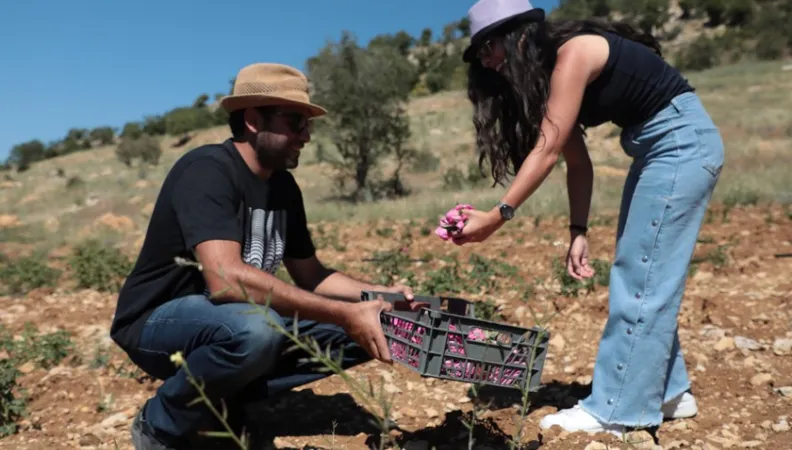
Lebanon has faced a series of overlapping crises since 2019 – economic, security, financial, and health – that have affected every sector of society. In light of this situation, AFD and its partners have implemented an ambitious program to boost employability, that is closely aligned with job market needs. This report follows young people whose lives have been changed by vocational training.
Lebanon has experienced a significant brain drain amid repeated crises that have depleted its human capital.
In 2017, AFD launched the Maharat Li Loubnan (Skills for Lebanon) program – phases 1 and 2 – in partnership with the European Institute for Cooperation and Development (IECD) and the Semeurs d’Avenir association, to provide job training for disadvantaged people, build the capacities of small and medium-sized companies, and help ease social tensions.
Eight years later, the program has delivered short- and long-term vocational training to more than 5,000 people and provided multifaceted support to 1,400 entrepreneurs.
Miryam Kabbabi – a new career in beekeeping
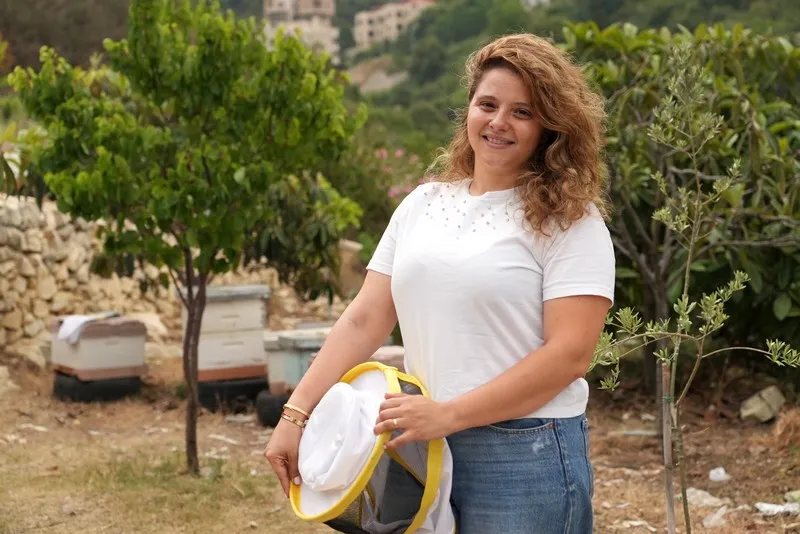
Working in the finance sector left Miryam feeling despondent. “I was under a lot of pressure and stress working in an office, so I decided to prioritize my well-being.” She found this mental peace by taking up beekeeping at the height of the economic crisis: “I fell into it almost by chance. I had a plot of land from my family and enough money to buy four hives.” She began making her own honey at home with her family, learning the ropes through online tutorials.
As demand grew among friends and family who loved her honey, Miryam started thinking about turning this small-scale operation into something bigger. “At first, I had no idea how to do it. Even though I had a Master’s Degree in finance, my business basically consisted of selling the honey I’d harvested.”
Through the IECD’s entrepreneurship program, she developed her organizational skills: “Managing my accounts and my priorities, so that I could set objectives for my business, calculate my costs and profits, and define my own salary... I didn’t know how to do any of it!” The program helped Miryam to structure and diversify her business in order to move forward. Today, her homemade honey, produced from four hives, has grown into a thriving business with over 100 hives.
She has realized her dream of making a living doing something she loves and would recommend it to all young entrepreneurs, especially women: “Bees recognize our voices and smells; working with them is incredibly rewarding. What we give to bees, they give back to us a hundredfold!” Miryam now has bigger plans for her beehives: she currently runs introductory courses on beekeeping for school groups and aims to take her business to the next level by creating a bee tourism center. Thanks to the IECD training, she has set her sights on a bigger and brighter future.
Hiyam Sayah – helping each other to succeed
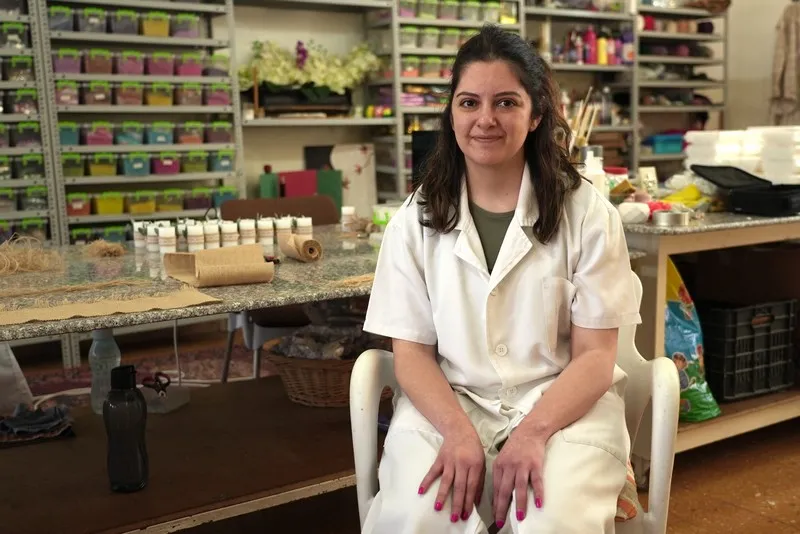
Hiyam is 32 years old. She was born with a mild intellectual disability that has affected her behavior since childhood. “She was slightly behind her classmates at school and often acted badly toward her sister and cousins. At the time, schools didn’t have the teaching methods in place to support these students,” says her mother.
Taken out of school in the eighth grade, for several years, Hiyam was unable to access traditional apprenticeship programs and career pathways. Her life took a different turn when she enrolled on the inclusive hospitality training program, delivered by IECD at the Agonista café, designed to teach young people practical skills in the hospitality sector.
Hiyam really enjoyed this training course: “It was my first training program, and the first time I’d worked. The course lasted a month and a half, and along with eight other people, I learned a lot, like how to greet customers and serve tables. And we were given a diploma at the end. It felt great.” According to her mother, this training was really beneficial because it made Hiyam more determined and self-assured.
Hiyam was hired as a kitchen worker by the NGO Message of Peace. She has some advice for others: “We need to help each other. When I see someone in the same boat that I was, I have to help them.”
Serge Chamoun – from qualified industrial maintenance technician to a career in the maritime sector
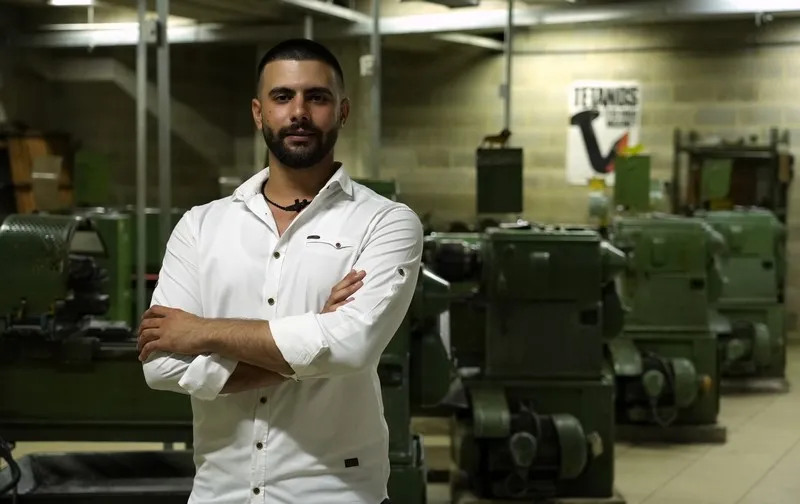
At 21, Serge Chamoun has always had a passion for the sea: “I’ve loved spearfishing and diving since childhood, and most of all, I’ve always been curious about how ships work and what working on a boat involves. But I didn’t know how to get into this field.”
In 2022, he was awarded a Vocational Training Certificate (BT) in Industrial Maintenance from the Mgr Cortbawi School in Jounieh. And this is where the IECD came in, giving him the guidance he needed for a career in the maritime sector. “I didn’t have the training in welding and assembly needed to work on a ship. On the IECD training program, I learned how to weld pipes and do very precise beveling work.”
Through this training, Serge gained the technical skills needed to enroll on the pilot training program organized by the IECD and the International Maritime Academy in 2023. “As part of the program, we took classes in maritime safety awareness, firefighting, swimming and sea rescue, while specializing in marine mechanics.” This training course gave him the skills required to work on any type of vessel, in the engine room or on deck, as a welder or a ship’s greaser. After three months of training, Serge passed his technical exams and was recruited to work aboard CMA CGM Group’s ships.
His main strength is his ability to find practical yet creative solutions to the multiple issues that arise at sea: “The IECD training instilled a sense of creativity and self-confidence in me which has helped me to constantly exceed my own expectations,” says Serge. He has traveled all around the world, from Sri Lanka and the Maldives to Thailand, and plans to continue following his passion for the sea. His next project is to become an underwater welder!
Batoul Hazimeh – a passion for electricity
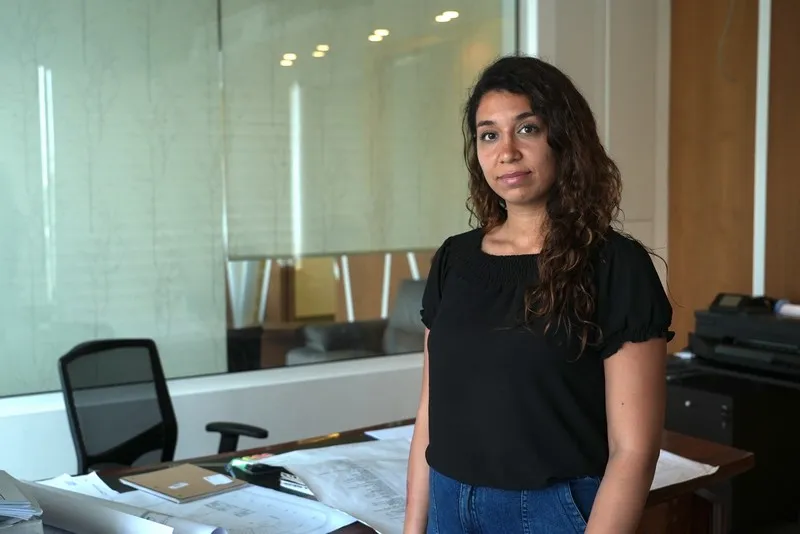
Having already graduated with a Master’s Degree in electrical engineering, Batoul Hazimeh, 33, dreamed of pursuing her love of electrical work. However, she struggled to find a job due to her limited number of professional contacts and lack of hands-on experience. After two years of job hunting, Batoul began to feel disillusioned.
In 2021, she enrolled on an electrical training program delivered by the IECD, where she gained the invaluable practical experience that she had previously been missing.
“I needed to apply these concepts in practice to better understand them. Through the IECD training, we learned, among other things, how to manually build electrical distribution boards, which were then sent to construction sites. It wasn’t just about theory anymore; I learned a lot about the concept, control, and power of electricity.”
In addition to this training, Batoul also attended classes on how to write a resume. And she quickly landed a job: “When potential employers saw that I had experience assembling solar panels, for example, it immediately increased my chances of getting hired.”
Today, Batoul works for a Lebanese company designing and automating electrical systems for smart homes. She has definitely found her calling: “Electricity is everything. We all depend on it and can’t live without it, and working in this field is a lot of fun. There’s always a new idea and more to learn.” And now she is dreaming even bigger: in ten years, she would like to be managing her own business.
“We have dealt with one crisis after another, always trying to find tailor-made solutions.”
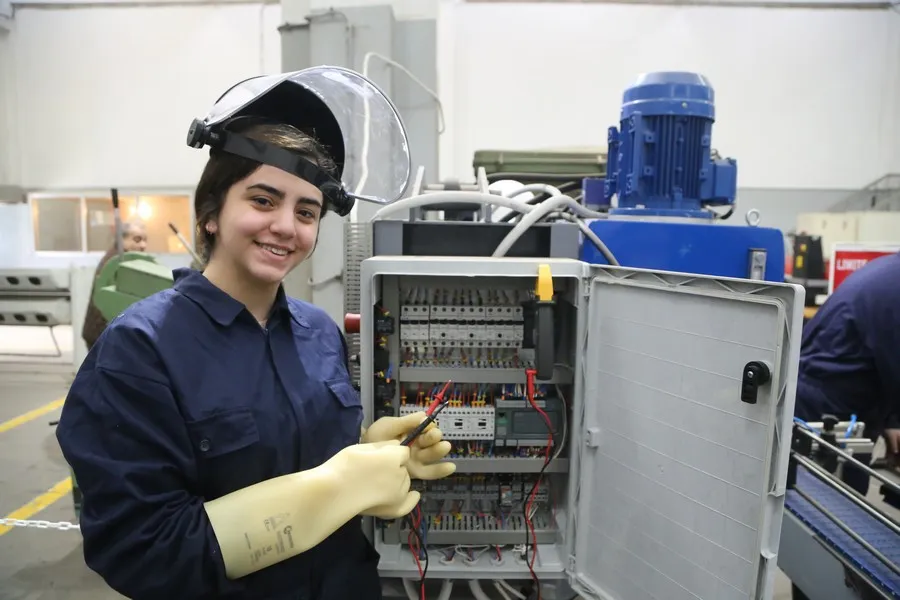
For Eddy Nasr, Program Manager at the IECD, the training program is geared around one keyword: employability. It all starts with academic guidance, and providing high-quality training programs aligned with market needs.
“According to market research conducted by Euromena, there is a labor shortage in the healthcare, energy, industrial, restaurant, agricultural, and construction sectors. Our programs therefore target these sectors because they offer real career prospects.”
This approach is tailored to people with different backgrounds, according to Marc de Kergariou, Director of the IECD in Lebanon: “For people who have dropped out of school, we prioritize short training courses of three to four months, focusing on practical and directly transferable skills. When they take an electrical training course, the idea is that they will learn to install a solar panel or operate an electrical distribution board.”
Beneficiaries with qualifications are offered more specialized training courses to develop their skills in existing professional sectors: “For example, we realized that among qualified nurses, there was a lack of certain specific skills, and particularly practical experience in these fields. So, we organized specialist training courses in intensive care, emergency care, and pediatrics to fill these gaps and help these individuals find jobs in public hospitals.”
The program targets a wide range of beneficiaries, with 50% women and 30% refugees among the participants on short-term training courses: “Many women are working in micro-enterprises that we help them develop so they become self-sufficient and can provide for their families. When it comes to people with disabilities, we make every possible effort to include them in our programs by working with local partners specialized in this field.”
The program has been operating on a flexible basis over the years, having to adapt to the many crises that have devastated Lebanon. According to Eddy Nasr: “We have dealt with one crisis after another, always trying to find tailor-made solutions.”
This partnership has proven a great success, as confirmed by Jean-Bertrand Mothes, Director of AFD in Lebanon: “Through AFD, France has been supporting vocational training programs for many years. We firmly believe that training aligned with the realities of the market is a driver of sustainable and inclusive economic development. We are fully committed to continuing this work alongside our partners, to make every career path an opportunity to increase resilience and build a better future.”
Always focusing on future sustainability, Marc de Kergariou says: “We always try to consider the project’s outcomes in advance. For example, when we develop a specific training program for a technical school, we provide equipment, as well as training reference materials that are validated according to the curriculum. We provide a wealth of knowledge, in terms of training, content and the necessary equipment. This prepares the technical school to continue providing this training even when we are no longer around.”
